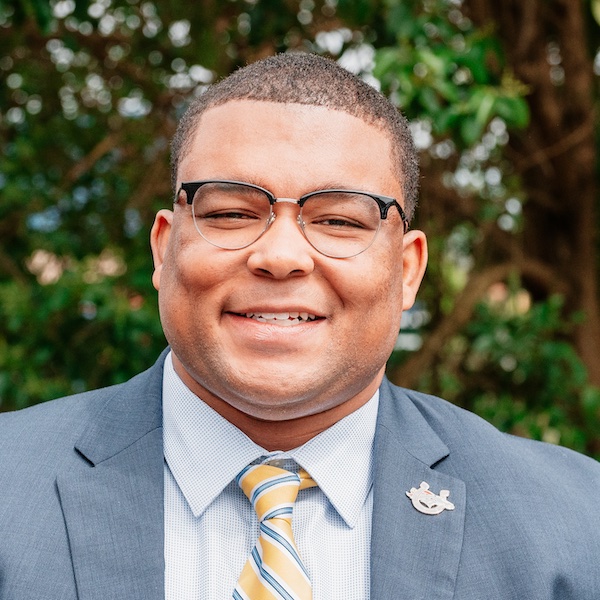How did you choose Anderson University?
I heard from the law enforcement community about the criminal justice program. Being a law enforcement officer who has a bachelor's degree, I thought this would be a great opportunity to pursue my master's degree, and at the same time, the administrative personnel or their professors there at AU were completely understanding in terms of the work schedule, me being on the 12 hour shift rotation.
Do you feel like your degree from Anderson University has been very beneficial in your work?
Oh, yes. In the school resource officer world, I have used that to talk to parents about their kids in terms of developmental stages and what signs to look for as they grow up. It was very beneficial from Dr. Doscher’s class and Dr. Murphy's class on strategic and tactical planning and all the other professors at AU that I have used and implemented (what I learned) at my school to make it a safer place for all students and faculty and staff.
What got you interested in law enforcement?
I think God placed it on my heart just to have that servant attitude, servant leadership. I have always referred to Jeremiah 29:11, “‘For I know the plans I have for you,’ declares the Lord, ‘plans to prosper you and not to harm you, plans to give you hope and a future.’”
And God can bless you in those plans. Sometimes you don't see it, right?
This past year has been a hard school year for the Palmetto community and the Williamston community. We had three students lose their lives… This year has been a hard year, but at the same time, I know why God placed me there at Palmetto High School to serve as an SRO. And it was more evident this year than anything.
Share a little bit about the joys and challenges of being an SRO.
I'll say the joys—every day just seeing the kids’ faces and interacting with the kids. And for a long time in the world of “the anti police culture” and everything else that's been going on in the media and in social media, I would say it’s the complete opposite. These kids embrace you, like myself as an SRO, as long as you're open, honest and truthful with them and be real with the kids. Most of them, they come from diverse backgrounds where mom is raising a child or dad is raising a child or grandparents are raising the child, and so… I can be a positive role model in someone's life, essentially, and also be an inspiration to lead others to Christ.
How long have you been an SRO?
This would be year number two. All together in law enforcement I have five years. I spent about two and a half years with Anderson County, then I left the sheriff's office to go to Seneca for over a year and then I was brought to Williamston to serve as an SRO.
Were you surprised that you got an Upstate Award and a state award?
Basically it’s the South Carolina Association of School Resource Officers… it's essentially all counties in the state and all municipalities, so it ranges from Charleston County, Richland County, Lexington County, Greenville County, Anderson County, Oconee County, and then all the small associations of small municipalities. And so I was quite surprised to receive the honor for the Upstate and SRO of the Year and then, as State SRO of the Year. I was quite shocked, to be honest.
Why do you think they picked you?
According to the president, they said when they read the stories from people who submitted it on my behalf, they said that you embody what an SROs is supposed to be, from going into classrooms, teaching them about law enforcement, how you are supposed to conduct yourself on a traffic stop or teaching the kids about drugs and drug use and this is what can affect your body or to small minute details, just interacting, sitting in the cafeteria with the kids and interacting with the kids—just being their listening board and sounding board.
There are so many facets to being an SRO, right?
I always refer to it as our triad—we’re law enforcement first, educators second, and then a mentor or a counselor third.
What kind of advice would you give to somebody interested in law enforcement work who wants to interact with young people and be a role model?
More than ever we need good servant leaders to serve in law enforcement capacity and embody that servant attitude, especially today. A lot of people don't realize it, but law enforcement today is more of that customer service type relationship, and building that foundation of trust with the community and law enforcement. In my role as SRO, I always tried to bridge that gap with the younger generation, so that way they can come to me with their problems and with their issues. And if I can recommend to anyone in law enforcement, and this has been said many, many times over and over, SROs are best kept secret in law enforcement, just for the simple fact that we interact with the community on a daily basis with people's kids going to school every day, and so they see the other side, the police chases or showing up to the home and trying to defuse a situation. It’s more of that personal based relationship.

